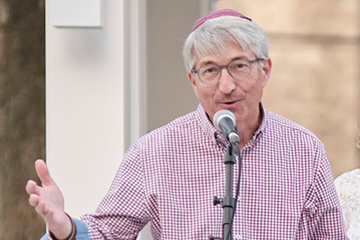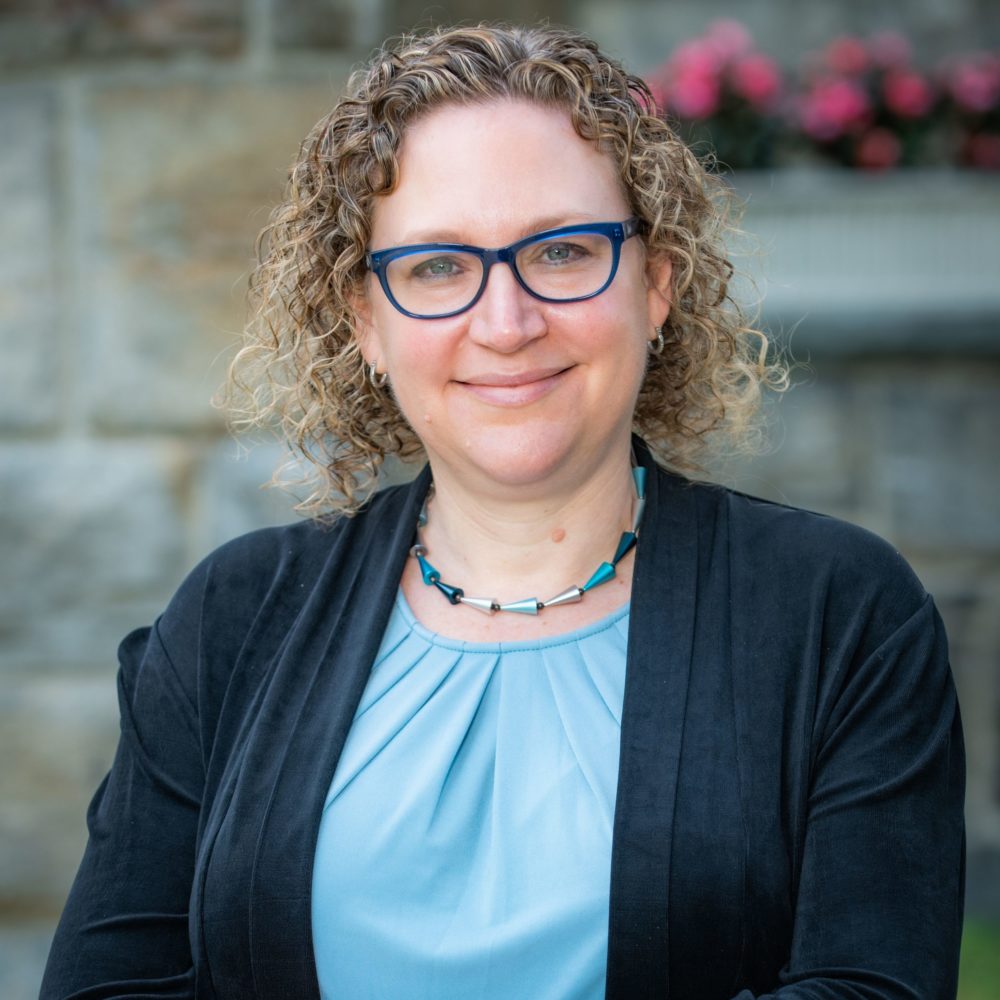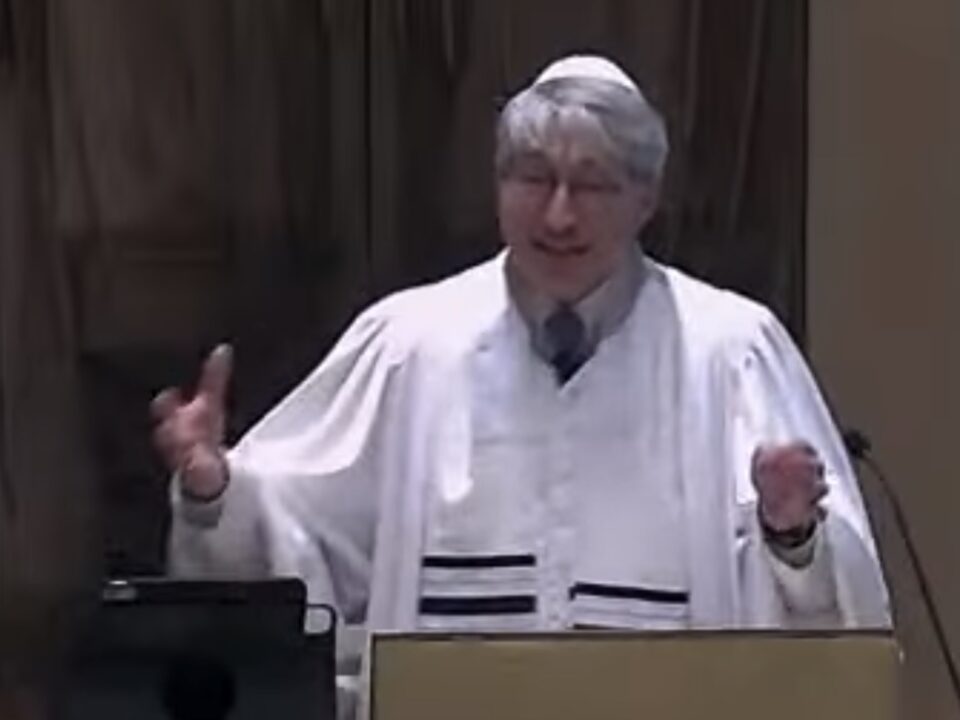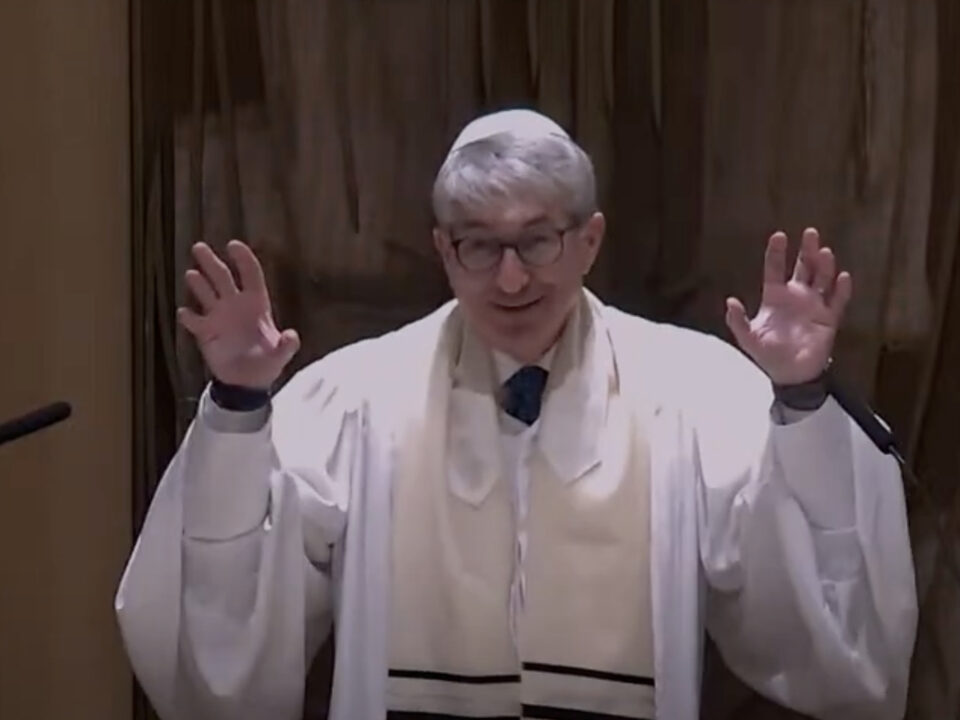
Rabbi Jeffrey Sirkman’s Sermon for Kol Nidre, 9/15/21
September 15, 2021
Opening Iyyun (teaching) Yom Kippur Family Service
September 16, 2021Israel - No Place Like Home
Growing up as a teen very involved in Young Judaea, my Zionist youth movement, I spent my high school summers blissfully entrenched in the culture of Camp Tel Yehudah in Barryville, NY. For me, it was Heaven. No, there was no horseback riding or water skiing…though we did play lots of basketball. The aim, based on the YJ connection we shared, was to create a community of young Zionists, all of us working towards our personal Aliyah, which the program inculcated through its very formation.
Just ask Rabbi Frankel who was not alone a product of YJ, and its National President, but also, decades after I went, the camp director!
I recall my second summer in Ulpan, the camp’s Hebrew immersion unit, spending days getting ready for the big play production, The Wizard of Oz, with a decided peoplehood plot-twist…not only were all the songs in Hebrew, of course…the storyline led Dorothy not home to Kansas, but to her homeland, back to Israel.
My best friend got the cowardly lion role I’d hoped for, but I still remember the chorus part we sang for Dorothy’s big number…“AY-SHAM YESHNA ERETZ KACH OMRIM BAH KOL CHALOMOTAI EF’SHAR L’HAG’SHIM,” (somewhere there is a Land, so they say, where our dreams we’ll fulfill come what may). We all knew it—Israel was our home. We all felt it—Israel’s dream was our daily hope. But that Zionist vision which was my life-perspective in the early 1970’s feels so out-of-focus in the early 2020’s.
In this past year’s Pew Jewish Population Survey, though 8 in 10 American identified Jewish respondents expressed a sense of Jewish belonging, the divide on Israel was striking. Whereas over 80% of the over-50 crowd claimed Israel-support as important or essential, for the under 30’s more than 27% said that Israel had little to no impact on their Judaism at all.
For younger generations today, Israel attachment is tenuous at best, And I’d guess that a majority have a tough time even perceiving the Jewish State as a place they could ever call home…
Truth be told, you don’t have to be a 20-something to be distressed by some of the failed policies of the recent administration, even in its aftermath, nor in the persistence of problems the “status quo” has caused for life in the territories. In most areas, West-Bank settlers, entrenched among the Palestinians, small pockets protected at great peril by the IDF, cause severe economic and security restrictions for the Arab majority, not to mention adding degrees of difficulty to any future two-state solution. The 54-year-old governmental acquiescence following the 6-Day War will take courage and ingenuity to overcome, but compromise will be the cornerstone of any hope for a better tomorrow.
And today, with so much work to be done within Israeli society to make it the democratic, pluralistic state it must be, and with contention the perpetual state of relations with our nearest Arab neighbors, the last thing anyone needed was the 11 Days-in-May Crisis. Whatever spark you select, from the potential eviction of 6 Arab families in East-Jerusalem’s Shiekh Farrah apartments, to the Jerusalem Police entering the Temple Mount to disconnect the Al Aqsa sound system calling Muslims to Prayer so it would not disturb a speech about to be given by Israel’s President, what’s clear is that in the tinder box of daily life in Israel, the flames for a fight are easily fanned.
And when fire breaks out, the result is always devastating, over 250 dead by May’s end, mostly Palestinians in Gaza. Leaving economic distress, families dispossessed…and with Hamas-missiles striking indiscriminately in Israel’s major population centers, Israel’s citizens rightly in fear for their lives, running for shelter, the residual trauma remains.
As the hostility reverberated, spilling into the streets of Israeli-Arab towns from the Negev to the Galilee, bands of young Israeli Muslims hurling rocks at Jewish neighborhoods, even torching a Synagogue—and bands of Israeli Orthodox extremists attacking Arab citizens at will, we understand why hope is so hard to see.
Tribal conflicts are always near-sighted, because they cannot see much beyond themselves. For Israel’s vision to ever be truly realized, for the sake of its own tomorrow, Israel must be far-sighted. Consider, then, what I’d propose as a bi-focal prescription that might bring our Israel-vision into focus, If not clarify its purpose as a place we can all/yet call home. One lens helps us see from the outside-in, the other from the inside-out.
Prescription Part I: How might we view Israel to help it feel more like Home? With Diaspora-distance almost always diminishing our read on the details and nuance of life on the ground, we tend to see events in Israel as black and white, in sharp contrast, failing to notice the spectrum of color, varied and complex.
The recent conflagration, case in point…the response of most was to place blame: those murderous Hamas terrorists…those Israeli war-mongers…Einat Wilf, former MK and Foreign Policy Advisor to Shimon Peres calls this the “Placard Strategy” pithy slogans you’d see on a protest sign condensing the condemnation to a potable quotable.
But because this approach is not as much about facts as it is feelings, The Israeli-Palestinian conflict gets poured through the prism of our own American social critique…rather than the tedious work of encouraging both sides to address the great challenges of learning to live together, we take sides—right against might, human good against hate.
Pick any ideal you like.
Yet if the goal is to engage with the actual issues, to work towards acceptable, mutually beneficial solutions, then casting one side as the good guy and the other as the bad guy is not only a counter-productive characterization, it fails to acknowledge the far-sighted truth: that when neighbors fight, nobody wins.
So what lens can bring clarity looking from the outside-in? National Editor of The Forward, Rob Eshman offers a radical idea. Rather than our being armchair warriors or not-so-professional pundits hurling platitudes, reflexively firing off pro-Palestinian or pro-Israel projectiles, we could take a balcony seat above the fray and ask: What can be done on both sides to advance the cause of reconciliation? Can we be critical of violence, of inhumane treatment wherever it arises Can we not see that Israel’s vitality is intertwined with a more humane, just, and vital quality of life for Palestinians. Yes, we can, like our brothers Ben and Jerry critique, condemn key policies of Israel while still fully supporting the growth and existence of a Jewish State.
But rather than a “half-baked” boycott for human rights, attempting to punish Israel while actually denying the Palestinians as well, by fostering humanity and sanity among Israelis and Palestinians, let’s find practical ways to help real people willing to treat one another with decency and dignity, to reach beyond the borders of their own tribe, seeing life through the lens of dialogue, imagining a more hopeful, humane future.
And what of our lens from the inside-out?
Prescription Part II: How can Israel’s self-perception help envision a state which we’ll see, no matter where we live, as home? Fractured and fragile, suffering from a societal dissention we know too well, sown and sustained by its leader of the last 12 years, with a Prime Minister personally corrupt and politically self-serving, exiting office without ever acknowledging defeat or caring enough about the country’s continuity to contact its incoming leaders, Israel requires a revisioning from the inside-out!
As American born but longtime Israeli venture capitalist Adam Fisher wrote, responding to blanket condemnations of Israel by a certain US Congressional rep best known by her initials, “True leaders have the self-confidence to change their minds, if not admit error…Israel is an imperfect democracy [which is how a lot of democracies can be described] But it’s our imperfect democracy. Those of us who love this country will continue working to improve things here with care, while defending it from its detractors who don’t really care much about any of us—Arab or Jew.” Speaking to Adam a few weeks ago, he added: “As Jews, no matter where we live, we all need to care about Israel, what happens there and how, for it ever to feel like home.”
As an entering 10th grader at Tel Yehudah, I spent every morning in Sicha Session, sort of a lecture lesson, on one of the key thinkers in what was then our American Zionist Bible, Arthur Hertzberg’s The Zionist Idea. One of the other kids at camp in my chug was a highly committed, critically minded guy from Queens who was always asking questions, Gil Troy, who grew up not only to become Prof of North American History at McGill, but, among the most influential interpreters of Zionism today. A couple of years ago he published what’s been called “A Zionist Bible for the 21st Century,” entitled The Zionist Ideas, Visions for the Jewish Homeland Then, Now and Tomorrow. Closing his Acknowledgements, Gil shares his highest hope, “I want Jews and non-Jews concerned about the Jewish future to join this rousing conversation about this grand Jewish experiment. Together we can help the Jewish homeland that fulfilled its founding mission as a refuge reach its full potential as an ‘old-new dreamland,’—a model Jewish democracy.”
Troy sets the standard for todays refocused Israel vision:It is a conversation of shared concern where everyone’s questions are heard, all answers are considered, debated, and where the aim brings renewal of Israel’s founding hope…as Theodor Herzl wrote in his diary in 1896: “…The world will be liberated by our freedom, magnified by our greatness. And whatever we attempt to accomplish for our own welfare will be beneficial for the good of all humanity.” Imagine, Israel’s very being as a blessing, Its existence a celebration of freedom, its every day the unfolding of a dream. With all it faces today, that founding vision seems more like a pipe dream. Yet, formidable as it feels, Israel’s future has always been fueled by determined, defiant visionary dreamers.
Just over a year ago, Knesset Member from the centrist Blue and White Party gave her maiden speech, usually a formality, but for her it was anything but. In 11 minutes, this modern Orthodox moderate challenged the bifurcated body to restore the Jewish state’s center…“Since I arrived 2 weeks ago, I haven’t stopped thinking about Rabbi Yochanan Ben Zakkai…who managed to rescue the Jewish people out of Jerusalem and its burning Temple, and through his Academy of Study at Yavneh, invent Judaism anew…In the midst of a terrible civil war about how to deal with the Romans which turned into a war of identity, a war of all against all…We find ourselves today, 2000 years later, in the midst of a massive political crisis, a terrible plague spreads outside, and yet inside the same destructive desire to defeat each other, the same blindness causes us to spend most of our time on internal conflict. We attack our institutions. We attack one another, and we endanger the very existence of this shared home.”
Then Tehilah Friedman posits the radical possibility of an old-new vision: “I’m suggesting the formation of an alliance of moderates…to bring back the forces from the extremes…and to build a shared center…I am a Jew, a religious person, a feminist, a Zionist…that all carries truth and beauty and good…but I have things to learn from Mizrachi Traditionalism, from the Jews of the Soviet Union, from the Jews of Ethiopia…from the liberals, from the Haredim. I have things to learn from the Arabs, the Druze, from the Bedouin. I have things to learn from the Jews of the Diaspora.” Friedman finished with her inside-out understanding of why this vision is crucial for Israel’s continued existence…“I speak in a gentle voice. You can be misled into thinking my message is calling to form a gentle and compromising center. But it’s the exact opposite. The center I’m talking about is a principled center, not willing to compromise about its responsibility for all the residents of our country, or about the role it plays for the many who really want to live together. It puts limits on self-righteousness, limits on selfishness. It’s a center that’s willing to sacrifice in the name of moderation and democracy, a Judaism that makes a place for others, a center that with its very being protects the rules that allow us to manage our difficulties without breaking into pieces.” Holding back tears, deeply aware that Israel’s survival rests on seeing anew, she ends: “I believe in the need for a unity government…It’s the only way to save us from destruction…these are the days of the third Temple. Just like the two that preceded it, it is fragile. It's flammable. It is not a given. Its stability is our responsibility. Its existence depends upon us.”
Israel today is guided by two leaders who bring very different perspectives to the table, and who have little choice but to compromise, to cooperate so as to move things forward. This confederacy of rivals may just create space enough for the shared center Israel urgently needs to reclaim its direction. Creating that space can make a place we will all feel at home.
In 1973, during those formative teen years I spent at TY, members of Young Judaea just a few years older than I was founded Kibbutz Keturah in the Negev Desert…I remember thinking when I heard, “That’s absolutely meshug!” Then, on YJ Year Course three years later in 1976, I spent three months on Keturah, and up at 5:30AM to pick peppers or milk the cows…I got to live the dream. Kibbutz Keturah encapsulated Israel’s hope for all it could/might become.
Its Vision Statement nearly 50 years later still reflects the far-sighted pragmatic idealism that invites every one of us to see her or himself through its prism…“Our community is a critical part of the Zionist enterprise whose central mission is the Jewish people’s national, spiritual, and cultural renewal. Our identities as Jews, as individuals, as a kibbutz community and as a nation are all part of a dynamic growth process…Encouraging participation in this great adventure, this is our call to anyone interested in joining our community, to help make real this vision, to embrace these shared ideals, for they include us all.”
This then tiny kibbutz founded by crazy American Zionist kids understood what we must: Living in Covenant means widening our lens and deepening our Israel vision. With a perspective that is bi-focal: integrating an insider’s commitment with an outsider’s questioning/critique. For then we can help foster a reclamation of that place we call the sacred center: a place that takes responsibility for the welfare of all who live there…a place where Herzl’s dream still lives: where co-existence is made real every day through courageous compromise. A place that enlarges our spirit through a dialogue of difference, and helps us find our way back to a land—a life—a hope…we can all still call home….
So this New Year, may it yet be…AMEN



